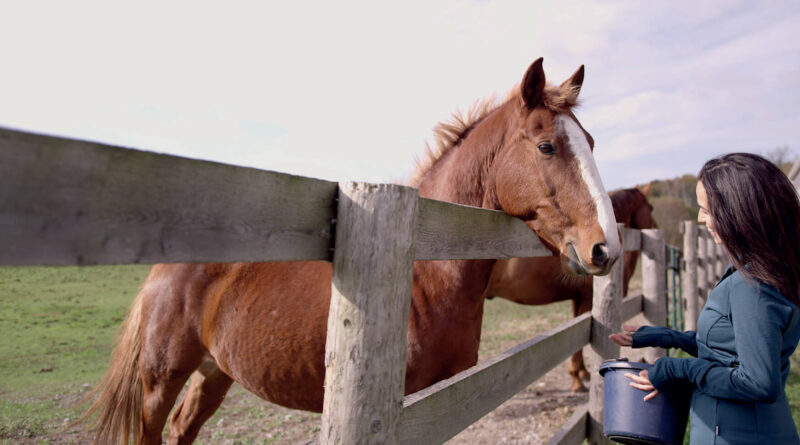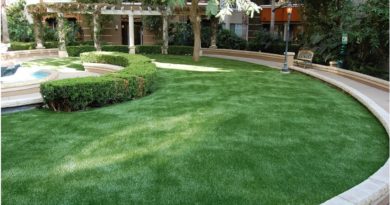Things to Remember When Dealing With an Older Horse
“The horse, with beauty unsurpassed, strength immeasurable, and grace unlike any other, remains humble enough to carry a man upon his back.” – Amber Senti.
A horse can never get old; it becomes vintage. Old horses require extra care and affection, but that doesn’t mean they can’t serve the purpose. Horses are considered senior when they are above 20-25 years old. The real old age issues don’t come with age but come when the horse starts facing health issues. These issues include arthritis, cardiac problems, and nutritional deficiencies.
You can avoid all nutrition-related issues by taking advice from experts like Fox Equine Nutrition from yearly years. But what if you haven’t paid attention to nutrition then, and now your horse is suffering?
The solution is to grab the opportunity and start doing things right away.
Follow are some ways to help your horse age better:
Look For Health Issues
Health issues can occur at any age. But it is likely to occur at an older age. As a caretaker, you must keep an open eye on abnormal behaviour and health issues.
These issues can be anatomical or physiological, or even psychological. When you recognise the problem, you can start treating the root cause, and that’s when the next step arrives. The next step is to find solutions.
Finding solutions categorised by their root cause is a way to go about it. One can solve horses’ health issues by giving extra attention to nutrition or providing them with supplements to solve problems that need to be resolved as soon as possible.
Try to tailor your horses’ nutritional needs when they are of a certain age. Like humans, all horses, even from the same breed, can have different dietary needs. The need to alter their feed depends upon the feed they have been consuming for the longest time.
If their feed consists of hay and dry grass, it is a possibility that they lack some nutrition. The deficiency of iron, potassium, calcium, and selenium can cause bone defects, white muscle disease, abnormal cartilage formation, and many more.
They Need Nature
Horses are born to fly and conquer nature. Keeping them in the barn will be unbearable, and they are likely to inhale dust, germs, and dry grass particles when kept inside the barn. Older horses especially need to move around freely and spend time with nature.
One of the biggest reasons to keep older horses outside is to keep younger horses safe. There is an excellent chance that they can get injured, so the way to stop it from happening is to keep them away from each other.
Keeping them out is also helpful for their boine health as they will get Vit D from sun exposure and enough movement.
Never Put Their Dental Checkups on Hold
Since the significant diet of horses includes hay, dental issues are bound to occur. Their teeth from all the grass grinding can get cracked or sometimes break.
Tooth wear can also happen due to poor diet and lack of nutrients. Once the damage is done, it’s done. So to avoid the damage, it is necessary to visit the dentist every six months and, if required, every month.
Few symptoms that can help you recognise that your horse had dental issues are:
- Improper or half-done chewing
- Bad breath
- Spitting most of the food out of the mouth
- Loss of appetite
Keep Up With the Grooming
Horses need regular grooming, which is the way to keep them clean and away from parasitic attacks. Deworming is for all age brackets, but you need to keep updated with the parasitic growth if it is under control or not. If not under control, it can be lethal for your horse; regular appointments with the vet can only help in this regard.
Arthritis is prevalent in horses, mainly due to the untrimmed hooves. Trimming your horse’s hoof will keep their feet the right size and help them fight arthritis.
Keep Track of Their Nutritional Needs
With the horse’s age decline, it is more likely to get multiple deficiencies. The decline can occur due to an improper diet or abnormal absorption of nutrients from the feed. You can look for the following symptoms to incorporate suitable supplements into their diet:
- Weight loss
- Low stamina
- Weak immune system
- Muscle defects
- Impaired reproduction
- Bone defects
- Decrement in hooves growth
- White Muscle Disease
If your horse has the symptoms mentioned earlier, it’s time to consult their dietician and add supplements to their diet. These problems can occur due to the deficiency of fat, Vit A, iron, copper, potassium, and electrolytes. Consult a vet and get their tests done as soon as possible to start the supplements.
Keep Them Moving
Horses are very active animals born to fly high and handle physical stress. So if you see your horse tired with the same workload it used to do before without getting exhausted, it’s time to give it suitable supplements and exercises.
Excessive sweating also signifies that your horse cannot perform its old tasks as happily as before. The way to keep them moving without burdening them is to give them rest more often. In hot weather conditions, keep them inside and hydrated.
Their exercise intolerance doesn’t mean they should be entirely on rest, and it is essential to keep them active with proper supplements, hydration, and rest.
Conclusion
Taking care of an old horse can be overwhelming. But the way is to keep checking on them, taking extra care of their health, and taking them to the vet more often.
Like humans, they need extra attention, especially with their diet; that’s why you need to get assistance from expert nutrition solutions like Fox Equine Nutrition. Consultation on different health issues with their experts will help you easily manage your senior horse.
The key is keeping them near nature, providing necessary nutrition and hydration. These steps will give your horse a long and healthy life.



